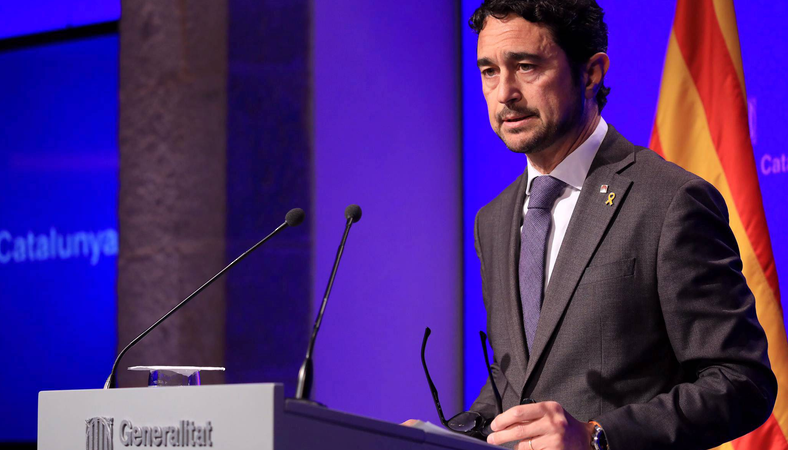- The document will lay down the principles necessary to meet the targets set in the Climate Change Law and the National Agreement for the Energy Transition of Catalonia

In a meeting today, the Executive Council approved a preliminary report on the draft bill on Catalonia’s energy transition and the transformation of the Catalan Energy Institute (ICAEN) into the Catalan Energy Agency.
The legal text will lay down the legislative principles of Catalan energy policy necessary to meet the objectives established in the Climate Change Law and the National Agreement for the Energy Transition of Catalonia, which set the goal of achieving an energy model based entirely on renewable sources by 2050.
According to Minister Calvet, the new legislation will seek to “drive and incentivise the transition to an economy and society that are low-intensity in terms of consumption of energy and material resources, as well as being carbon-neutral”. To achieve these goals, areas of priority attention will include support for economic sectors adapting to new conditions caused by climate change, implementation of a new urban mobility model, elimination of regulatory and administrative barriers that hinder the fight against climate change, strengthening of incentives, and prioritisation of policies and resources that contribute to transforming the energy model.
In addition, to move forward as fast as possible, the Catalan government is finalising changes to the regulations that govern wind and solar power implementation in Catalonia.
The new legislation also envisages the transformation of the Catalan Energy Institute (ICAEN) into the Catalan Energy Agency. This measure, which fulfils a mandate established in the Climate Change Law, is aimed at making the entity an instrument for driving Catalonia’s energy transition, with the capability to effectively govern and coordinate actions under the National Agreement for the Energy Transition of Catalonia.
This legislative initiative is part of a package of measures the government has set in motion to tackle the climate emergency in Catalonia. Since declaring a climate emergency, the Catalan government has allocated €50 million to lines of action aimed at saving energy and improving efficiency in industry. A total of €7.3 million has been allocated to subsidise replacement of older vehicles with electric or more efficient models and for the installation of charging points. This funding is in addition to €2.9 million invested in a network of rapid charging points along Catalonia’s main roads. A further €8.3 million has been made available to fund business innovation projects that advance the energy transition, and the SOLARCAT strategy has been reoriented and expanded.
The Catalan government is also working to ensure that state-level electrical grid planning for the 2021–26 period includes a package of infrastructure (including 12 substations) for the evacuation of wind and solar power generated in Catalonia. Various dissemination and public participation projects have also been carried out to raise awareness and engage people and companies in the energy transition.
The Catalan government has been a pioneer in orienting its energy policies in a way that drives the transition to a new model that is cleaner and more sustainable. In 2016, the government started negotiating the foundations of the National Agreement for the Energy Transition of Catalonia with social, civic and economic partners, and its actions have made possible a state-level regulatory framework that is more favourable in areas such as shared self-consumption.